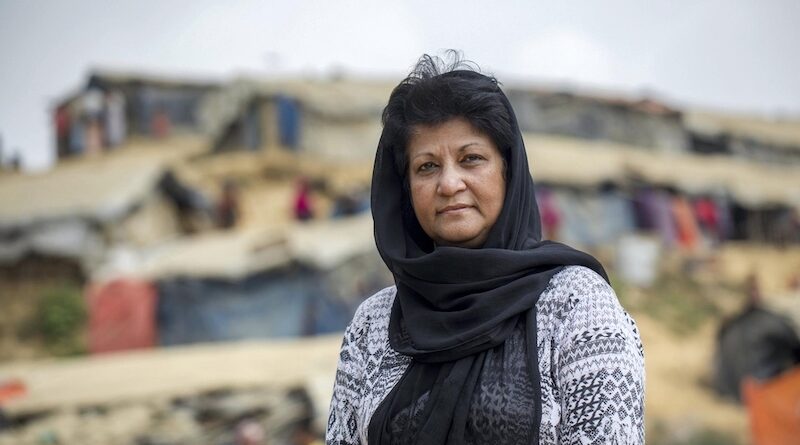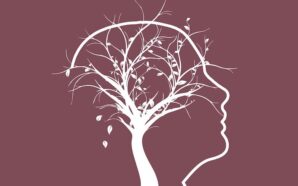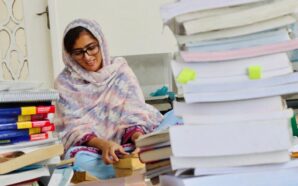This article was originally published in Ananke's Special Digital Edition COVID19 & Gender published on August 13, 2020.
Gender inequality and discrimination takes place from birth, be it health, education or even an individual’s social status. Blindness, avoidable or otherwise, echoes a similar story as about 55 percent of people affected are women.
One thing the COVID19 has exposed is how ailments and diseases discriminate on the basis of gender. The same holds true for eye health, explains Dr Zareen Khair, Country Manager of the Fred Hollows Foundation in Bangladesh. Chatting with Ananke’s Sabin Muzaffar, Dr Khair talks about her life’s work that focuses health, primary eye-care under a gender lens and how an inclusive, gender-sensitive vision can trigger women’s economic empowerment.
Tell us a little about yourself and the journey that led to the Fred Hollows Foundation?
I graduated from the University of Mysore and received my PhD in Anthropology. I also hold a Bachelor’s and a Master’s Degree in Sociology from University of Chittagong, Bangladesh. I have more than 30 years of experience in global health, covering adolescent reproductive health, HIV/AIDS, Nutrition, behavior change communication, social marketing, maternal child health, and research.
Studying anthropology has been a catalyzing element as it relates to people and enables me to have a very broader vision especially in my line of work. I have had the opportunity of working for national and international organizations focusing on multiple programs related to women as well as other vulnerable groups in the late 80s and early 90s. In 1992, I began my 13 year journey with the USAID. With a huge portfolio of work experience covering maternal and child health as well as HIV AIDS, I joined the Fred Hollows Foundation in 2008. Prior to joining the Foundation, I had no related experience of the primary eyecare sector. But my work essentially focuses on a broader level of implementing programs and ensuring quality services. We have rolled out successfully running eye health programs in collaboration with the public sector, NGOs, with a special attention to the female garment workers and women and girls in general.
Tell us more about the Fred Hollows Foundation and its work in Bangladesh?
I established an office here in Bangladesh when I joined the Fred Hollows Foundation and later became the country manager. We now have 90 people working here. I am currently responsible for overseeing the implementation of eye healthcare projects in four divisions in Bangladesh including Chittagong, Barisal, Khulna and Dhaka covering more than 32 districts and more than 50 million population. Through our survey and research, we found out that this is where you get the most vulnerable people.
In your opinion, what is the one single ingredient that can help programs like primary eye care services by the Fred Hollows Foundation to gain momentum?
The focus has always been to offer quality services. And one of the key barriers come from cultural norms, mindsets with deeply entrenched superstitions that many a times deter people from getting medical help.
For any program to gain momentum and find success, it needs to be done not just at the grassroots, it needs representation. Involving a Bangladeshi native like myself, an anthropologist with a wealth of experience in terms of gender and vulnerabilities in the healthcare sector enabled us at the Fred Hollows Foundation to accomplish the vision of saving sight and moving towards its goal of eliminating avoidable blindness.
True, superstition as well as our very own belief systems can pose serious hurdles when it comes to programs focusing gender equality in healthcare.
Indeed, in cultures steeped in patriarchy, a broader vision needs to be embraced. Empowerment begins with the support of men. The notion of HeForShe is critical for any society aspiring inclusion and representation. In order to reach the woman and empower her, you have to reach the man first. So even for our programs to work, we make sure that men are on board. We engage with them and make them see the benefits of empowering women and the importance of taking care of their well-being. Women are actually assets and not liabilities.
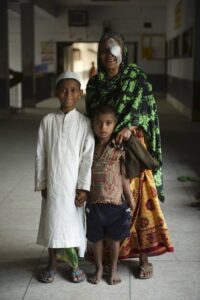 It is not an unfamiliar truth that our male counterparts are given preference when it comes to some of our most basic human rights, that is access to health and education etc. Why is it important to speak about equal access to eye-care?
It is not an unfamiliar truth that our male counterparts are given preference when it comes to some of our most basic human rights, that is access to health and education etc. Why is it important to speak about equal access to eye-care?
A woman contributes to the well-being of the family through unpaid care work. Regaining eye sight not just means regaining her confidence, but the ability to work productively.
We can also take another example of the girl child. With proper eye sight, girls get better results at school. And when they do get good results they are not even taken out from schools. Think of the immense socio-economic and familial benefits that society as a whole can reap from an educated woman.
Many a times women over the age of 50, who are more likely to develop cataracts, seldom receive eye care services as they are unfortunately deemed as useless members of society. But if they do get help, they assist in care-work responsibilities at homes when all other members are out for work. So it really is about optics and how to make families see the benefits of empowering a woman with clear vision.
We talk about having women in leadership roles. Why is it so important to have representation and a gender strategy?
I really believe it is crucial to have gender strategies in place for any program to work successfully and be sustainable. And this comes in shape when you have a dialogue with your team members. I want to put one thing on the record and say that having a woman on board lends a female perspective, a representative voice giving any initiative a holistic view. And this is how we made our program successful and gained so much respect and credibility in the eyes of the public sector, NGOs as well as those benefitting from the program.
It is actually through representation that we understand the cultural and social sensitivities of our beneficiaries. It starts with being mindful of women’s needs when receiving an eye checkup, including segregated areas for checkups as well as nursing facilities for mothers. We were mindful of putting these in place to make sure women have an easy access to services and equal opportunities to visit the eye doctor with comfort and care. We also introduced special women’s only screenings day such as Women’s Day. It is really important for us to see if those coming in for treatment are satisfied or not with the services offered.
You have also received the L’OCCITANE Sight Award for Innovation for a project aimed at reducing the gender gap in eye care in the rural areas of Bangladesh. We would love to know more?
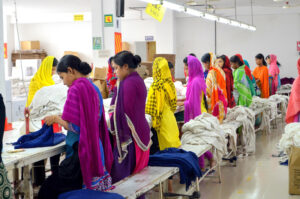 It is an immense honor to receive recognition for the work one does. Through the project, the Foundation works in partnership with women’s health and women’s rights organizations, up-skilling of maternal workers with eye care skills, to reach more rural women and children with primary eye care and information.
It is an immense honor to receive recognition for the work one does. Through the project, the Foundation works in partnership with women’s health and women’s rights organizations, up-skilling of maternal workers with eye care skills, to reach more rural women and children with primary eye care and information.
Our programs ensure screenings are conducted in schools to catch eye issues right at the start and that too especially in girls. We have installed eye testing charts, along with pictorial guides in schools at specified corners where students can do a self-screening and find out. It is called a self-detection corner. We bring all the teachers, the principal and the school administration together and give them an orientation as to how they should go about it. We make sure that we bring the services to them so that they actually benefit. The doctors also make routine visits, screen the students and give them spectacles as and when needed. We applied a similar strategy in garment factories.
The Foundation’s program focusing female garment factory workers is groundbreaking…?
Through our baseline survey, we found out that six out of 10 garment factory workers were suffering from issues of the eye, not just related to sight but dry eye syndrome etc. This is a common occurrence because of the scope of the work. And because the female garment worker’s salary is based on the number of products she finishes, it becomes vital to have clearer vision and of course better eye care.
It wasn’t very easy to penetrate the garment factories because these organizations are for-profit so we needed them to understand that looking after the well-being of their worker meant more productivity.
Another aspect when dealing with garment factory workers was the fear in the employees that they might be fired if they wore spectacles. So we engaged with the factory management and owners and made them understand how a clearer sight increases productivity and it benefitted them. It was important for everyone to see how the program was entirely beneficial for each of them.
With the world dealing with the COVID19 crisis, what kind of optics do we need to view health and well-being and by extension eye health?
Eye health like everything else, and especially the COVID19, need to be viewed with an intersectional approach. Narrowing the gap in eye health means not just reaching out to rural and urban women, but also the indigenous woman, transgender and the sex workers, and all the marginalized professionals. There are inequalities even within the same gender. And with the current Coronavirus crisis, we need to have a multi-stakeholder approach if we are to deal the situation at hand.
The COVID19 has created a huge challenge especially in the public sector from access to PPEs, maintaining safe distance to providing access to healthcare services. We are very mindful of taking precautions and have strategies in place. Not a single thing can go wrong because if there is even a rumor of a facility hit by the coronavirus, it can be damaging to our cause. That said, necessity is the mother of invention so we are looking at ways to overcoming challenges. Humanity will make it through these hard times.
Images Courtesy The Fred Hollows Foundation.




